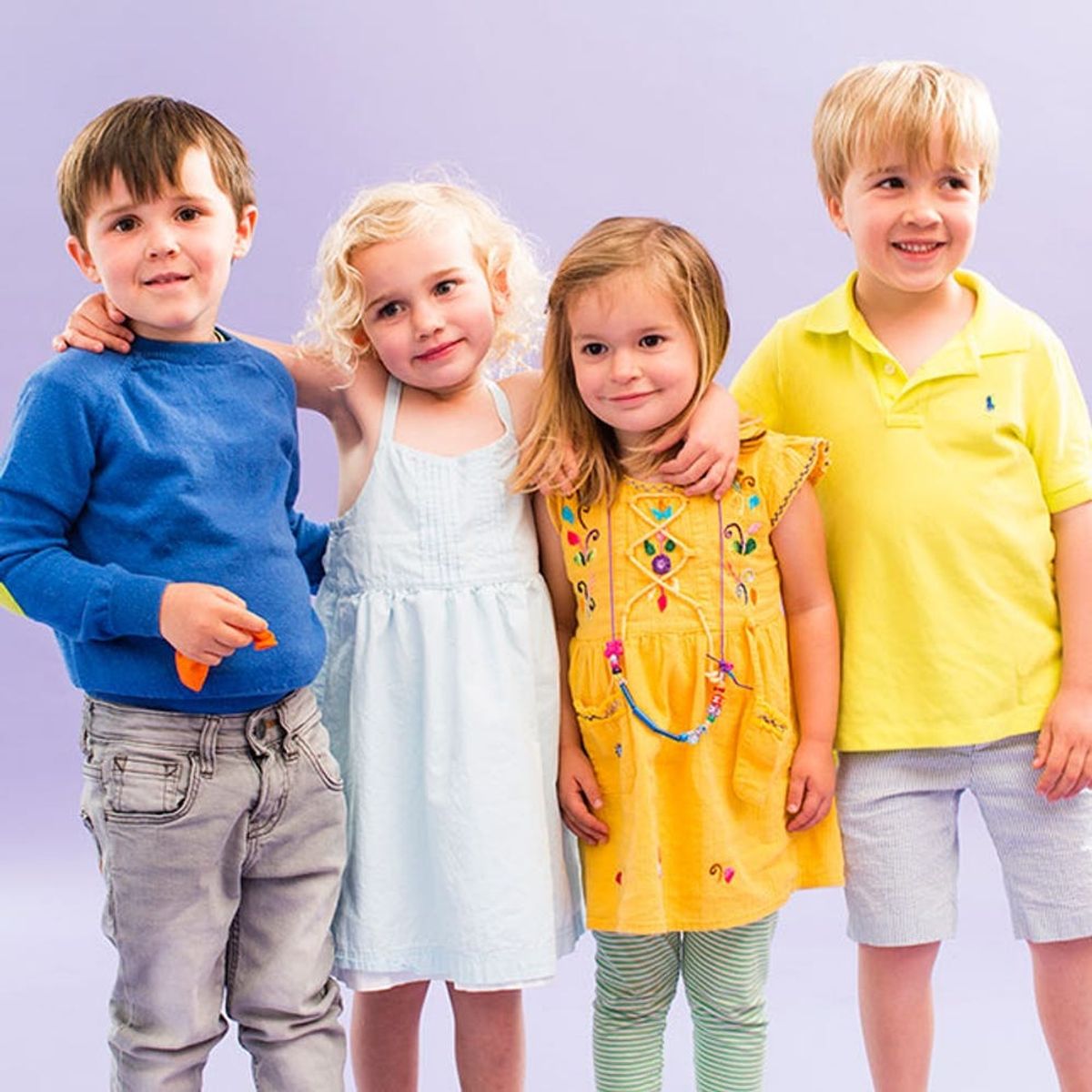Middle children, this one’s for YOU!
The Secret Talents of Middle Children That Make Them Stealth Leaders

Middle children of the world, it’s important to know you have your own *day*. Literally. August 12th is National Middle Child Day, and I’m the awkward first-born in the room, here to wish joy and tidings to all you middles out there. While much is made of the dreaded “Middle Child Syndrome,” middle children are actually the “stealth leaders” of the birth-order pack according to Katrin Schumann, co-author of The Secret Power of Middle Children. I spoke to Katrin about some of the qualities middle children tend to develop that prime them to be trailblazers, entrepreneurs and fantastic team leaders.
According to Schumann, the stereotype that middle children are overlooked is actually true in the world of birth-order research. “There have been tons of studies on first-borns and last-borns but middles are always sort of getting lumped together and rarely looked at, so [my co-author, psychologist Dr. Catherine Salmon,] wanted to focus on them,” she says. The Secret Power of Middle Children remains one of the few full-length investigations into the psyche and characteristics of the middle child.
1. They are negotiators and consensus builders: After growing up in the center of sibling conflict, middle children are skilled at managing conflicting personalities and negotiating compromises. They know how to get what they want without being too aggressive. “People don’t typically think of middles as being CEO material,” says Schumann. “We’re always thinking of the hard-driving first-born, with that laser focus, who’s super organized and has this powerful personality. But middles are great consensus builders, and I think of them as ‘stealth leaders’ — they have a very different management style than what we expect from CEOs, but it can often be very effective. They don’t necessarily operate from the top down in that traditional, hierarchical setup — they’re more consensus builders and they’re great with teams. They have built up these qualities — empathy, integrity, perseverance, and responsibility — which play very well when you’re working with a group.”
2. They are risk takers and innovators: Schumann believes that middles don’t get enough credit for their innovative thinking. “Because parental expectations haven’t been as onerous for middles as it is for firsts and even last-borns, there’s a little more freedom and flexibility as they’re growing up to see the world through their own lenses instead of something that’s been imposed on them by others’ expectations,” she says. “So middles are often trailblazers, because they have that freedom to think outside the box. Especially in the workforce today, where we’re required to have a lot of individual energy and personal drive as opposed to just sitting at a desk following rules, that kind of ability to think outside the box stands you in good stead. There are some middles — Michael Dell or Carly Fiorina, for example — who aren’t necessarily without controversy, but exemplify that ability to look ahead and be a risk taker, to lead people and think outside the box.”
3. They are self-motivated and will persevere: Because they have never been handed recognition, middle children are used to working hard for their accomplishments. “Middles persevere,” Schumann says. “They’re workhorses in a way — they’ll keep going. You can tie it back to the idea that they’re justice seekers — they want to do things right and they’ll keep at it. They’ll fight for what they want because they don’t just get it. Often last-borns will have things come a little too easy for them, so they might give up faster because they’re not used to having to work so hard. Middles persevere and see things through.”
4. They are underestimated, and that’s not necessarily a bad thing: “Middle children really and truly are underestimated,” says Schumann. “But I call them the stealth leaders, because it’s almost to their advantage. When people don’t come in with these tight expectations of you, it gives you freedom to do more of what you want and to become who you want to be because you’re not trying to mold yourself to what other people expect. It could certainly work against you, but really I think it’s a hidden strength. Instead of focusing on the areas where they didn’t have as much attention as they wanted or they didn’t love the dynamic at home, if middles can focus on the great qualities they’ve developed as a result of that upbringing, then they gain the sense of competence and self-esteem and ability to really succeed in the workforce.”
Ultimately, The Secret Power of Middle Children helps to overturn some of the outdated stigmas that have discounted middle children as leaders. Where they are often seen as resentful, they are motivated and independent. Because they grow up bearing witness to different treatment among their siblings, they are very concerned with justice. They make friends easily and often emerge from their family dynamic as skillful peacemakers. Because parents may have taken a more hands-off approach in a middle child’s upbringing, middle children will often develop patience and flexibility, qualities that nicely accompany their penchant for risk-taking.
Happy Middle Child Day, guys — may I speak for all first-borns in saying that we admire your negotiation skills, risk-taking and perseverance. We could use more leaders like you.
What are your experiences being an older or younger sibling? Have you ever wished that you had an older or younger sibling? Share your thoughts in the comments below.
This post was originally published on Levo League by Kelsey Manning.



















